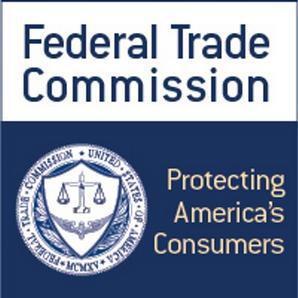By Gayle S. Putrich
STAFF REPORTER
Published: October 23, 2014 12:30 pm ET
Updated: October 23, 2014 12:49 pm ET

WASHINGTON — Makers of oxodegradable or oxo-biodegradable plastic bags should consider themselves on notice, according to the U.S. Federal Trade Commission.
The agency has sent letters to 15 plastic waste bag companies, warning that their oxodegradable, oxo-biodegradable, or biodegradable claims may be deceptive, as consumers understand those terms to mean the same thing as “biodegradable.” Companies must remove the claims from their marketing materials or present “competent and reliable scientific evidence proving that their bags will biodegrade as advertised” to FTC, the letters said.
FTC is not releasing the names of the companies or their products at this time, and spokesman Mitchell Katz said any plastic bag company making oxo-biodegradable claims should not assume that their claims are in compliance with U.S. federal regulations just because they did not receive a warning letter.
Since the 2012 revision of its Guides for the use of Environmental Marketing Claims, known as the Green Guides, FTC has been cracking down on the greenwashing of products and services that are not actually as environmentally friendly as consumers are led to believe.
According to the London-based Oxo-Biodegradable Plastics Association (OPA), “there are two very different types of biodegradable plastic.” One is oxo-biodegradable, made from everyday polymers including polyethylene, polypropylene and polystyrene with metal salts additives that catalyze the natural degradation process, speeding it up in the presence of oxygen; oxo-biodegradable plastics can also be recycled in traditional facilities.
The other is bio-based or “compostable” plastic, OPA says, designed to biodegrade in industrial composting facilities or with the help of anaerobic digesters.
FTC’s Green Guides do not define oxo-biodegradable, only stating that any claims regarding degradation be backed up with scientific evidence and items must “decompose into elements found in nature within a reasonably short period of time after customary disposal” to be called biodegradable, oxo-degradable, oxo-biodegradable or photodegradable.
“Unqualified degradable claims for items that are customarily disposed in landfills, incinerators, and recycling facilities are deceptive because these locations do not present conditions in which complete decomposition will occur within one year,” according to the Green Guides.
Common oxo-biodegradable products degrade in anywhere from six to 18 months, according to OPA, though the length of time is largely dependent on the manufacturer’s formulation.
But part of the argument oxo-biodegradable bag manufactures face from FTC is that most trash bags in the United States end up buried in landfills, where oxygen cannot reach the plastic to speed degradation as intended.
“The OPA advises its members not to make unqualified claims, and to state that oxo-biodegradable plastic is not suitable for composting,” the group said in a news release. “Oxo-biodegradable plastic is not intended to degrade deep in landfill. It is designed to address the problem of plastic litter which escapes into the environment.”
Oxo-biodegradable plastics suppliers should have their own products tested by reputable laboratories, OPA says, but consumers should know what recycling and composting facilities are available near them and shop accordingly.
| 